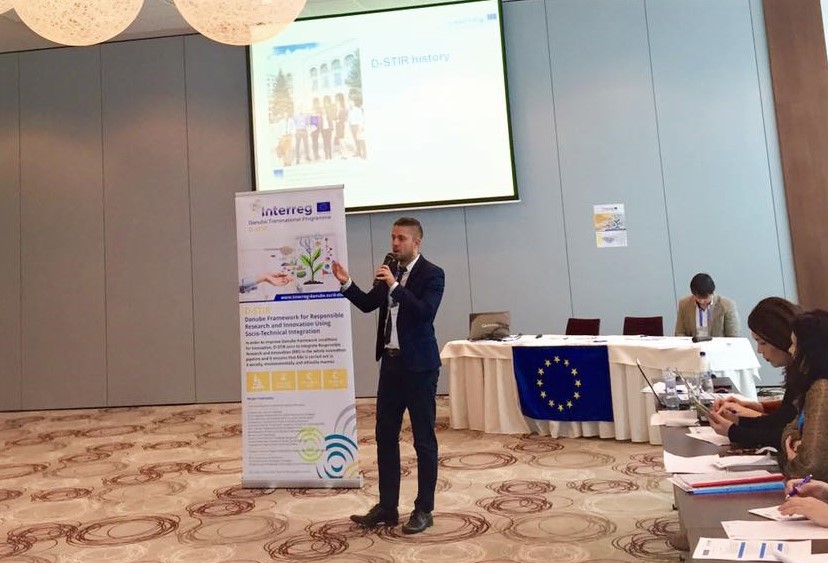D-STIR - Interview with Dr. Miklós Lukovics, lead expert of the First Hungarian Responsible Innovation Association
17-03-2017
Dr. Miklós Lukovics: “In my opinion, D-STIR is a historic opportunity for the Danube region”

You are the idea owner of the D-STIR Project. What is the background of it?
The history of D-STIR dates back to 2012, when we investigated responsible innovation within the framework of FaRInn (Facilitating Responsible Innovation in South-East European Countries) Project. We worked in that project with many people who are involved now in the current, D-STIR project. FaRInn clearly demonstrated that dealing with responsible innovation in a higher level in the post-socialist countries is important, since they own different characteristics than the developed ones.
How did you get to know the STIR methodology?
We tried to look for the best practices of responsible innovation within the FaRInn project and found this methodology at Arizona State University. The so-called Socio-Technical Integration Research (STIR) turns theory into practice, helps to implement RRI approach to the everyday work of the laboratories. It involves a structured approach that has been employed in over three-dozen research and innovation settings and has documented results in a number of national settings across Europe, North America and Asia.
How did you acquire the knowledge of STIR methodology?
I had contacted Professor Erik Fisher at the Arizona State University, consequently, I spent three months in his research group in the United States. There I could learn the methodology and we planned the first STIR project together, in which STIR was tested in a lagging behind country, Hungary – for the first time not in a developed one. It is important to note that until now, STIR was only applied in laboratories in the developed countries.
What results have been achieved by the Hungarian pilots?
The two pilots proved that STIR works in lagging behind regions, however, the method has to be tailored for the innovation environment to be perfectly effective. This perception is the direct prequel of the D-STIR project.
What is your impression about the D-STIR project?
I look forward the forthcoming results with great excitement. It was proven at the kick-off meeting that an excellent project team will be working on the solution, so, I am waiting the next period with great curiosity. It is a deep pleasure for me that Erik Fisher, who was my mentor in the United States, works as an external expert on the project. Additionally, he is going to visit us in Szeged in July 2017 to hold the STIR meeting personally for the D-STIR project team. In my view, this is a huge thing, a great opportunity and responsibility at the same time. In my opinion, D-STIR is a historic opportunity for the Danube region.
Within the First Hungarian Responsible Innovation Association, we consider D-STIR project with high priority, that is why we organized a project team, in which members take responsibility for their work: Dr. Miklós Lukovics lead expert, Dr. Beáta Udvari professional expert, and Bíborka Bohner operations manager, are involved in the project implementation.
